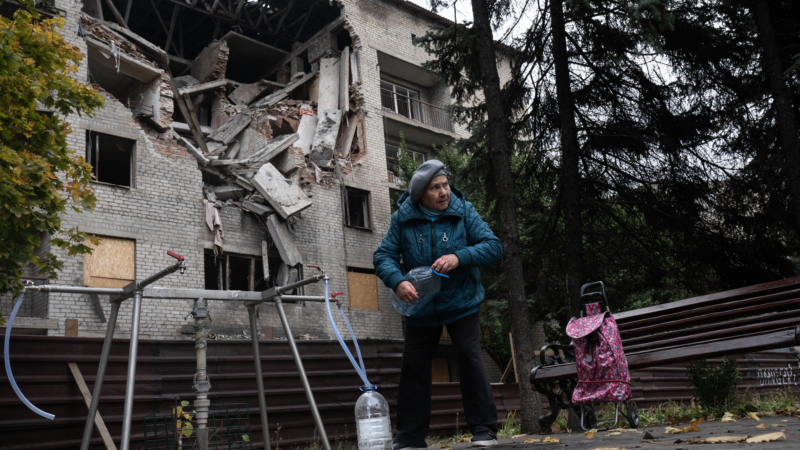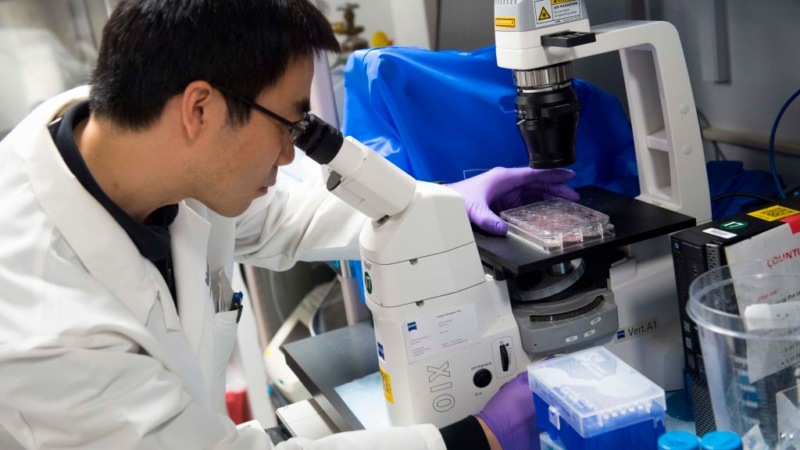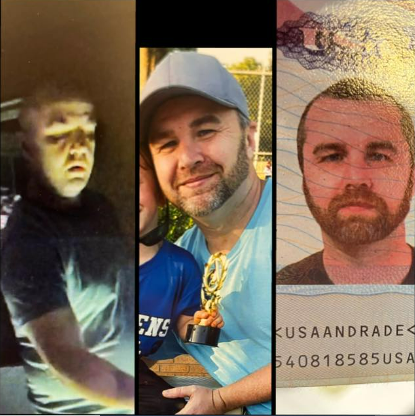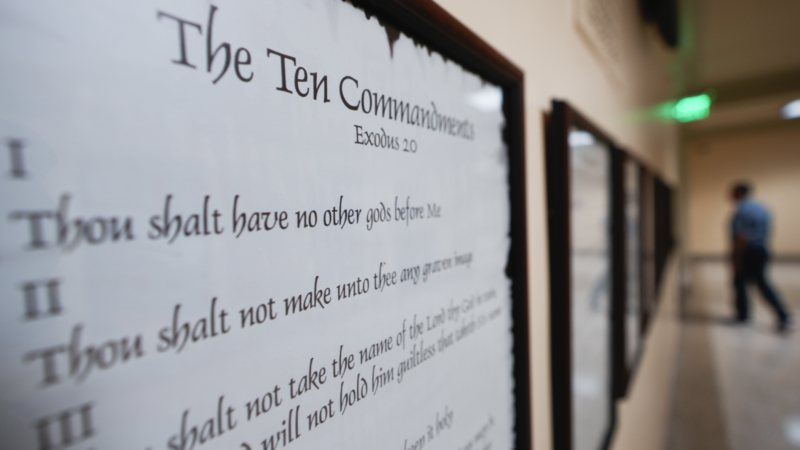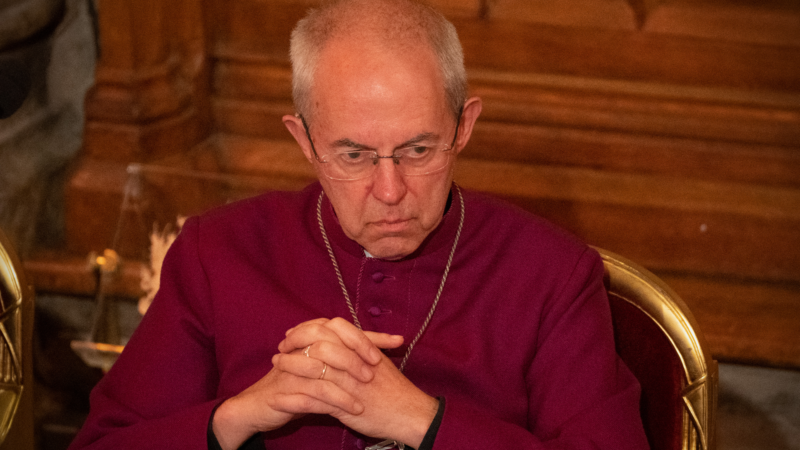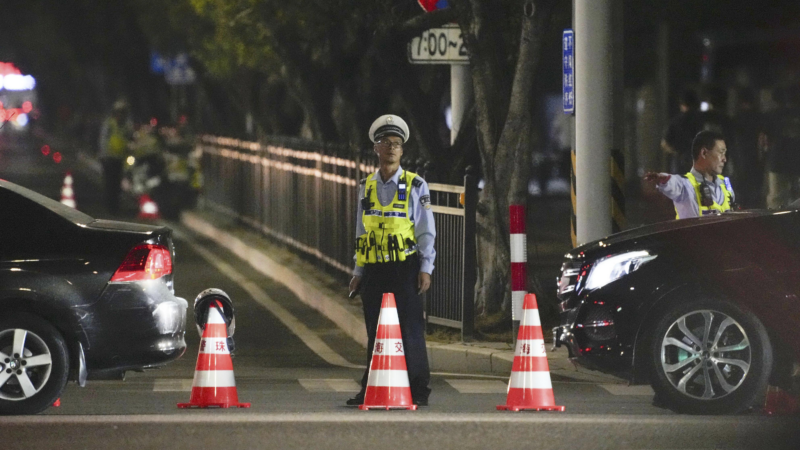Near the front line of the Russia-Ukraine war, Ukrainians are bracing for the U.S. election
DOBROPILLYA, Ukraine — In this no-nonsense coal mining town, the news of the day is often discussed at a row of outdoor spigots. Townspeople fill containers with drinking water here, after the Russian invasion cut off the town’s main water supply in a nearby town.
Though the United States is 6,000 miles from this corner of eastern Ukraine, many here are following Tuesday’s presidential election closely.
“I can’t stop thinking about it,” says Volodymyr Maruch, a 45-year-old miner, as he hoists three large containers of water into his car. “What will it mean for our country’s destiny?”
Russia occupies about 20% of Ukraine. Since Russian forces invaded in February 2022, the U.S. has been Ukraine’s biggest single supporter, providing more $175 billion in military, economic and humanitarian aid under President Biden.
“The new president of the United States can either strengthen support for Ukraine or weaken it,” Ukrainian President Volodymyr Zelenskyy told reporters this week. “Weakening support will allow Russia to occupy more land.”
Vice President Harris has pledged to continue supporting Ukraine’s defense. Former President Donald Trump says he won’t approve more aid, but insists he can end the war “in 24 hours” if he’s elected, though he hasn’t said how.

Maruch, the coal miner, says he hopes Trump “isn’t as stupid as we think,” calling him a “fool in a special relationship with Vladimir Putin.” He believes Trump admires Putin and will let the Russian leader take over all of Ukraine.
Russian troops already occupy 80% of Donetsk, the industrial region that includes Dobropillya, and are inching closer to another coal hub, the city of Pokrovsk, which is also a key supply center for Ukrainian soldiers.
About 35,000 people live in Dobropillya and surrounding villages. The town is less than 20 miles from the front line. Russian missiles often hit it. In September, an attack trapped 151 of the town’s miners underground.
“We house many displaced people from other parts of Donetsk here in Dobropillya,” says Ihor Kurdia, a deputy in the local regional military administration. “But no one is safe from Russian missiles. Just a few days ago, one killed a 4-year-old girl.”
Kurdia, a former high school history teacher, says he knows nearly everyone in town. He waves at a young family as he walks through a largely deserted playground.
“We have actually encouraged most families to leave because it’s too dangerous here,” he says. “I worry about our people. I want to save their lives. I want this war to end so mothers do not cry in Kyiv, or even in Moscow.”

He also wants Ukraine to get its land back and believes Americans, regardless of their politics, support Ukraine’s victory. He says he welcomes whoever Americans elect.
“When there’s a new U.S. president,” he says, “I don’t believe we will lose American friends.”
Across town, at a cafe called Sunrise, owner Tetiana Regeda is less optimistic. She worries the U.S. has lost interest in Ukraine.
“I hope whoever becomes the next American president can at least get us to the negotiating table,” she says. “Everyone is tired.”
At her cafe, she hears just how exhausted Ukrainians in this part of the country are. She often hears women sobbing because their sons and husbands have been conscripted. Some have died on the front line as Russian troops advance.
“You can take back territories,” she says, “but not people’s lives.”
Zelenskyy has said he is ruling out territorial concessions, no matter who the new U.S. president is. Regeda says she feels that’s not realistic.
“From the way it looks today,” she says, “I doubt we will return to our prewar borders.”
Outside Dobropillya’s hospital, medic Ilya Poltavtsev helps a young pregnant woman who has blacked out.
He lives in Myrnohrad, a nearby town that’s closer to the front line, and often evacuates Ukrainians trapped on the front line to Dobropillya.
“The civilian population suffers most,” he says. “I can’t bear it anymore.”

He says he’s even willing to make a desperate plea to Putin: “If I have to kneel and beg for the bloodshed to stop, I will do it. I will give up everything I own.”
He says the biggest contribution the new U.S. president can make is to stop the fighting by any means.
“If you have a magic pill that will end the war,” he says, “we are willing to buy it.”
Loading…
NPR producers Hanna Palamarenko and Polina Lytvynova contributed reporting from Dobropillya and Kyiv, Ukraine.
Transcript:
MARY LOUISE KELLY, HOST:
The world is watching the U.S. election, maybe nowhere more so than in Ukraine, where the outcome is seen as a matter of national survival. Ukraine’s president says he refuses to give up territory for a peace deal no matter who wins on Tuesday. But the view from a coal mining town in eastern Ukraine where Russian troops are advancing – it’s more complicated. NPR’s Joanna Kakissis has our story.
JOANNA KAKISSIS, BYLINE: The town of Dobropillya is just about 20 miles from the front line. Russian missiles frequently strike here. Mechanic Dmytro Mohsin points to a bombed-out dormitory.
DMYTRO MOHSIN: (Speaking Surzhyk).
KAKISSIS: “It’s scary,” he says, “but here we are.”
(SOUNDBITE OF WATER RUNNING)
KAKISSIS: He and his neighbors are huddling around outdoor spigots, chatting as they fill containers with drinking water. The Russian invasion cut off the town’s main water supply. I bring up the U.S. presidential election, and Volodymyr Maruch, a coal miner, says he’s really wound up about it.
VOLODYMYR MARUCH: (Speaking Surzhyk).
KAKISSIS: “The candidate who supports us is Kamala Harris,” he says. “I’m hoping Donald Trump is not as stupid as we think he is, this fool in a special relationship with Vladimir Putin.”
Russian troops already occupy 80% of Donetsk, the coal-mining region this town is part of. And those troops are outside another coal hub, the nearby city of Pokrovsk, which is also a key supply center for Ukrainian soldiers.
IHOR KURDIA: (Speaking Ukrainian).
KAKISSIS: Ihor Kurdia is Dobropillya’s deputy mayor. He says a third of his town’s residents are refugees from Pokrovsk and other besieged cities. But no one is safe from Russian missiles.
KURDIA: (Speaking Ukrainian).
KAKISSIS: “Just a few days ago,” he says, “one missile killed a 4-year-old girl here.”
UNIDENTIFIED CHILD: (Speaking Ukrainian).
KAKISSIS: Kurdia is a former high school history teacher. He knows everyone in town. He waves at a kindergartener and his parents as we walk through a largely deserted playground.
KURDIA: (Speaking Ukrainian).
KAKISSIS: “I worry about our people,” he says. “I want to save their lives. I want this war to end so mothers do not cry in Kyiv or even in Moscow.” He also wants Ukraine to get its land back, and he believes Americans, regardless of their politics, support Ukraine’s victory.
KURDIA: (Speaking Ukrainian).
KAKISSIS: “When there’s a new U.S. president,” he says, “I don’t believe we will lose American friends.”
(SOUNDBITE OF MUSIC)
KAKISSIS: At a cafe called Sunrise, owner Tetiana Regeda is less optimistic. She worries the U.S. has lost interest in Ukraine.
TETIANA REGEDA: (Speaking Ukrainian).
KAKISSIS: “I hope whoever becomes the next American president,” she says, “can at least get us to the negotiating table.” At her cafe, she says she often hears women sobbing because their sons and husbands have died on the front line. She’d rather save lives instead of territory.
REGEDA: (Speaking Ukrainian).
KAKISSIS: “I doubt we will return to our pre-war borders,” she says. “We have to be realistic.”
ILYA POLTAVSTEV: Stop. Stop. Stop. (Non-English language spoken).
KAKISSIS: Outside the town’s hospital, medic Ilya Poltavtsev helps a young pregnant woman who has blacked out. He evacuates Ukrainians from nearby towns captured by Russian troops, and he has a plea for the American presidential candidates.
POLTAVSTEV: (Non-English language spoken).
KAKISSIS: “If you have a magic pill that will end this war,” he says, “we are willing to buy it from you.” He says it feels like Ukraine is losing allies and might not survive. He’s even willing to make a desperate offer to Vladimir Putin.
POLTAVSTEV: (Non-English language spoken).
KAKISSIS: “Even if I have to kneel and beg for the bloodshed to stop,” he says, “I will do it. I will give up everything I own.” Depending on who wins this Tuesday, he says, he hopes Ukraine won’t have to do the same. Joanna Kakissis, NPR News, Dobropillya, Ukraine.
(SOUNDBITE OF MUSIC)
With Trump coming into power, the NIH is in the crosshairs
The National Institutes of Health, the crown jewel of biomedical research in the U.S., could face big changes under the new Trump administration, some fueled by pandemic-era criticisms of the agency.
A man told 911 a bear chased him off a cliff. Weeks later, he was arrested for murder
Authorities say Nicholas Hamlett killed a man in Tennessee in an attempt to steal his identity, and reported it to police as a bear attack. He was arrested in South Carolina after a weekslong manhunt.
Federal judge blocks Louisiana law that requires classrooms to display Ten Commandments
The new Louisiana requirement that the Ten Commandments be displayed in every public classroom by Jan. 1 was temporarily blocked Tuesday. The judge said the law is "unconstitutional on its face."
Archbishop of Canterbury Justin Welby resigns over sex abuse scandal
Archbishop of Canterbury Justin Welby has resigned over accusations that he failed to report physical and sexual abuse to the police.
A man drove his car into a crowd in southern China, killing 35
A man who authorities said was upset over his divorce settlement rammed his car into a crowd of people exercising at a sports complex in southern China, police said.
Dutch appeals court overturns landmark climate ruling against Shell
The original 2021 ruling ordered Shell to cut its carbon emissions by 45% by 2030 compared to 2019 levels. The appeals court said there is "insufficient consensus" on a specific reduction percentage.
